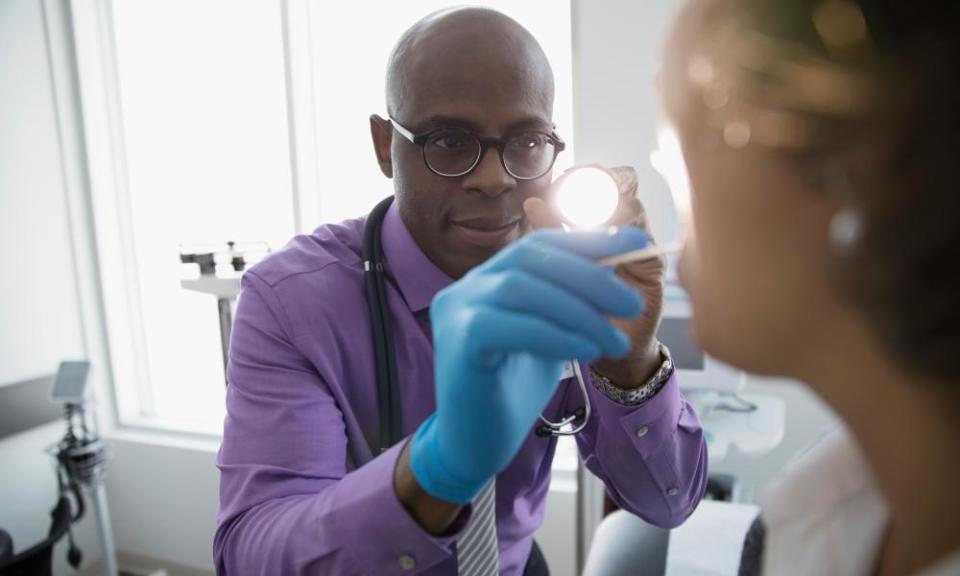The best birthday present for the NHS? An end to its institutional racism

Coronavirus has exposed disparities within the UK, in particular health inequalities. Despite the reverence with which the NHS is held, its 72nd birthday on Sunday will be remembered for the sheer devastation that the virus has caused.
With nearly 44,000 people declared dead, and almost 16,000 in care homes, the UK has become a lamentable statistic in the fight against coronavirus. We have the third largest number of deaths in the world, and the highest number of deaths per million people.
Another worrying statistic is the toll of the virus within the black and minority ethnic (BAME) community. While claims have been made that the virus is racist, including by health minister Lord Bethell, all Covid-19 has done is shone a light on disparities within our communities. According to the Office for National Statistics, black people are four times more likely than white people to die from a coronavirus related illness, while Bangladeshis, Pakistanis and Indians are shown to be at higher risk too.
The statistics for BAME health and social care workers are stark. When news emerged that the first 10 doctors who died from Covid-19 were BAME, alarm bells rang. The British Association of Physicians of Indian Origin (Bapio) wrote to the chief medical officer for England and chief executive of NHS England on 7 April expressing concern, but it took several weeks before any action was taken by the government.
Analysis published by the Health Service Journal in April revealed 63% of UK health and social care workers who died from Covid-19 were from BAME backgrounds.
There were reports of bullying and harassment of those asking for proper protection, risk assessments being undertaken for less than a quarter of the workforce, and individual stories of hardship.
The NHS and racism are old adversaries. Between the two of us, we have lived and worked in this country for 80 years, and we have each experienced racism at work and in the community. From some seniors trying to thwart our careers, to being called racist names, it has all been there.
Yet we have been the lucky ones. There has been enormous support for us throughout our professional lives, enabling us to give back to the NHS what we have in turn received: success, love and gratitude.
Related: How much progress is the NHS making on workforce diversity? | Roger Kline
However, enough is enough. The NHS was founded by Nye Bevan on the principle of equality, but the gap in many ways is widening. The NHS could not have survived without the commitment of immigrants from the Indian subcontinent, Africa and Caribbean, the majority of whom were lured from their countries with the promise of prosperous careers. Once here, many have had to live in deprivation and work in jobs that do not match their skills.
The NHS has a poor record on outcomes for BAME people. Studies have shown poor satisfaction rates, higher infant mortality rates, inequitable access to hospital services, higher psychiatric detention rates for the black community, higher incidence of diabetes and hypertension – the list is vast. BAME people are more likely to live in areas of high deprivation, in overcrowded houses, and the unemployment rate is far higher than that for white people.
Today, racial discrimination remains rife, even if it has taken a different form in creating impossible working conditions for many. The latest Workforce Race Equality Standard report from NHS England shows an increasing trend of bullying, harassment or abuse from staff, colleagues, patients, relatives or the public, whereas reports fell in number for their white counterparts. It found BAME doctors and nurses were twice as likely to face disciplinary action. And BAME staff have less faith in their trust giving them equal career progression and promotion opportunities, while discrimination from managers and team leaders had also risen.
In medicine, matters have not progressed at the pace you would expect. Racism starts right at medical schools and continues throughout doctors’ careers. A recent BMJ investigation found medical schools and universities turning a blind eye to racial harassment and abuse of minority ethnic students, there have been claims of differential attainment of GP postgraduate trainees by Bapio, and BAME doctors feel discriminated against by their regulator, the General Medical Council, because of disproportionate disciplinary actions.
Related: Sign up for Society Weekly: our newsletter for public service professionals
Public attitudes too have become entrenched, possibly due to Brexit. There have been cases of patients asking to see a white doctor.
So, the track record of the NHS on racism is poor. And although the NHS itself is not racist, its structural and institutional racism have blighted the lives of many BAME people.
So far in the NHS, tackling racism has been mere tokenism. We don’t need reviews or more reports. Empty rhetoric makes no difference. A culture change in the long run and mandatory targets and penalties in short term are essential. It’s time to call time on racism in the NHS, and this would be its best birthday present.
Dr JS Bamrah is chairman of Bapio and Kailash Chand is honorary vice president of the British Medical Association; he writes in a personal capacity

 Yahoo Finance
Yahoo Finance